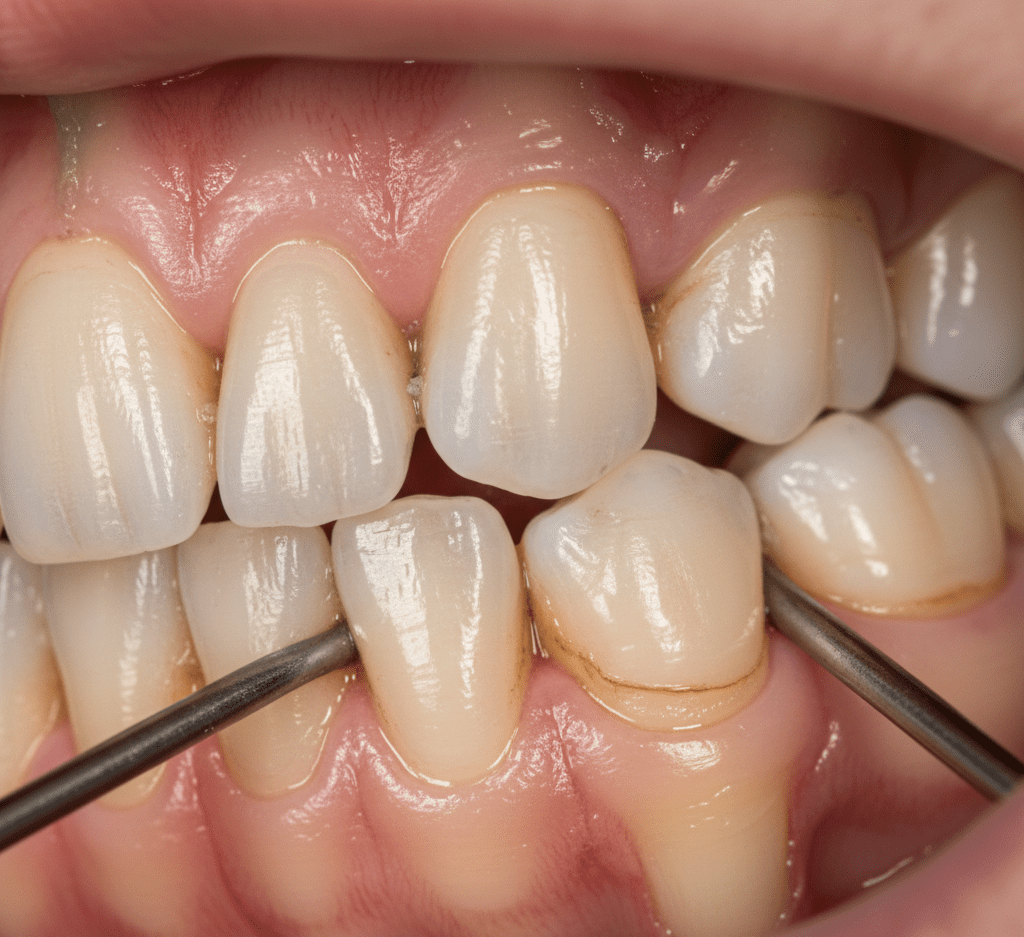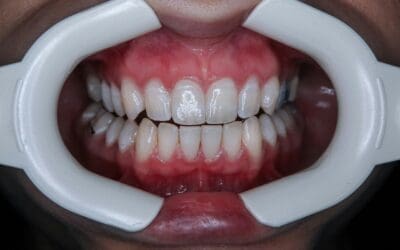I’m often asked about receding gums. It’s a common concern among my patients in the Leesburg area, and for good reason. When your gums recede, it can lead to increased tooth sensitivity, a change in the appearance of your smile, and, if left untreated, serious problems like tooth decay and even tooth loss.
In simple terms, gum recession is the process in which the gum tissue around the teeth wears away or pulls back, exposing more of the tooth or the tooth’s root. The good news is that we can often stop the progression and, in many cases, treat it to restore your gum health.
What Causes Receding Gums?
Understanding the root cause of your gum recession is the first step toward effective treatment. It’s often a combination of factors, including:
- Periodontal Disease: This is the most common cause. As gum disease progresses from gingivitis to periodontitis, the bacterial infection destroys the gum tissue and the bone supporting your teeth, causing the gums to pull back.
- Aggressive Tooth Brushing: Brushing too hard or using a toothbrush with hard bristles can physically wear away the gum tissue over time.
- Genetics: Some people are simply more susceptible to gum disease and recession due to their genes.
- Poor Oral Hygiene: Inconsistent brushing and flossing allow plaque to build up and harden into tartar, which can cause gum inflammation and recession.
- Hormonal Changes: Fluctuations in hormones, such as during puberty, pregnancy, or menopause, can make gums more sensitive and vulnerable to recession.
- Smoking or Tobacco Use: Tobacco users are more likely to develop plaque and tartar buildup, which can lead to gum disease and recession.
- Crooked Teeth or a Misaligned Bite: When teeth don’t come together properly, some areas can be exposed to more force, leading to gum recession.
Signs and Symptoms of Gum Recession
You may not even notice gum recession at first because it happens gradually. However, it’s important to look for these signs:
- Your teeth appear longer than usual.
- You can feel a notch or indentation at the gum line.
- Increased tooth sensitivity, especially to hot and cold foods.
- Bleeding after brushing or flossing.
- Loose teeth in later stages.
Prevention Is Key
The best way to deal with gum recession is to prevent it from happening in the first place. My advice to my patients is always to focus on these habits:
- Practice Proper Brushing Technique: Use a soft-bristled toothbrush and brush gently in a circular motion.
- Maintain a Consistent Oral Hygiene Routine: Brush twice a day and floss once a day to remove plaque buildup.
- Regular Dental Checkups: Schedule routine cleanings and checkups at Leesburg Dental to catch and treat problems early.
- Quit Smoking: If you are a smoker, quitting is one of the best things you can do for your gum health.
Treatment Options with a Periodontist
Once gum recession has occurred, it’s crucial to see a periodontist. As a specialist, I can provide a range of advanced treatments designed to stop the recession and, in many cases, restore your gum line.
- Scaling and Root Planing (Deep Cleaning): If the recession is caused by gum disease, this is the first step to remove bacteria and plaque from below the gum line.
- Soft Tissue Grafting: This is a common and highly effective surgical procedure to treat gum recession. I can take a small piece of tissue from another area of your mouth or use a donor tissue and graft it over the receded area. This covers the exposed root, reduces sensitivity, and protects your teeth from further damage.
- Pinhole Surgical Technique: For select cases, this innovative, minimally invasive procedure can correct gum recession without the need for traditional grafting or sutures.
The treatment plan for gum recession is as unique as the patient. As a periodontist, I will conduct a thorough examination to determine the cause and recommend the most effective treatment for you.
If you are concerned about your gums or have noticed signs of recession, please contact us at Leesburg Dental. Don’t wait for the problem to get worse—the sooner we address it, the better the outcome for your oral health.






